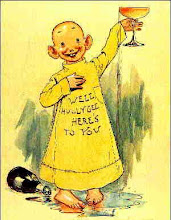Belle du Jour (1967) Dir. Luis Bunuel
Power and sex – heady and central in this film. Rather, I should say, sex is central; power operates through different people, in different ways, but always in conjunction with sex.
Nothing short of surprising, when one realizes that the sweet, gentile Severine is a masochist. She has been abused as a child, the perpetrator dies, and the dual guilt of her fallen nature and that she might have caused the man’s death makes her consume a kind of desire to be used. She feels she is filthy and wants filth, FILTH. Wants to be called filthy names, wants filthy sex and wants to be covered with filth. I know I am getting carried away, but there’s nothing like the sequence when two people are throwing muck at her; makes you want to squeeze muck in your fist. Powerful.
She cannot perform with her husband; firstly because he is too clean to satisfy this urge in her, moreover she has a sense of guilt, guilt that he is too good for her. So power structures are incoherent and mighty confusing – she is masochist and desires the usual BDSM and he does not dominate her enough, assert his power enough for her to be attracted. But he makes her guilty, guilty that he is so good, while she is so bad, guilty that he goes into a wheelchair, while she goes to a whorehouse. So her sense of guilt is his source of power then.
She finds fulfillment in the whorehouse where she is slapped and pushed and whipped. And finally her ultimate fulfillment comes from the man Marcel, who is an assassin and a hired criminal, who is the ultimate figure of a sadist in the movie. But his obsession with her breaks her joined world when he breaks into her home and then also shoots down her husband. Yet this is not so significant an event by itself, except that her husband is hereafter paralysed and she is his only support.
This film is definitely one of the most understandable of Luis Bunuel’s films, although I got it all wrong to begin with. It deals with many levels of sexual relations and as Bunuel said in his autobiography it is about “exposing bourgeois sexual perversions”. Every man in this film has in the past or present been a client at brothels. How blasé they are about it too.
Well touché to the film. Its definitely very provocative, although rather fun/funny, and incisive. One would suggest Jean Genet’s play ‘The Balcony’ to further delve into the sexual fantasies and reality-illusion, sex-power, power-life binaries that one sees in this film.
Nothing short of surprising, when one realizes that the sweet, gentile Severine is a masochist. She has been abused as a child, the perpetrator dies, and the dual guilt of her fallen nature and that she might have caused the man’s death makes her consume a kind of desire to be used. She feels she is filthy and wants filth, FILTH. Wants to be called filthy names, wants filthy sex and wants to be covered with filth. I know I am getting carried away, but there’s nothing like the sequence when two people are throwing muck at her; makes you want to squeeze muck in your fist. Powerful.
She cannot perform with her husband; firstly because he is too clean to satisfy this urge in her, moreover she has a sense of guilt, guilt that he is too good for her. So power structures are incoherent and mighty confusing – she is masochist and desires the usual BDSM and he does not dominate her enough, assert his power enough for her to be attracted. But he makes her guilty, guilty that he is so good, while she is so bad, guilty that he goes into a wheelchair, while she goes to a whorehouse. So her sense of guilt is his source of power then.
She finds fulfillment in the whorehouse where she is slapped and pushed and whipped. And finally her ultimate fulfillment comes from the man Marcel, who is an assassin and a hired criminal, who is the ultimate figure of a sadist in the movie. But his obsession with her breaks her joined world when he breaks into her home and then also shoots down her husband. Yet this is not so significant an event by itself, except that her husband is hereafter paralysed and she is his only support.
This film is definitely one of the most understandable of Luis Bunuel’s films, although I got it all wrong to begin with. It deals with many levels of sexual relations and as Bunuel said in his autobiography it is about “exposing bourgeois sexual perversions”. Every man in this film has in the past or present been a client at brothels. How blasé they are about it too.
Well touché to the film. Its definitely very provocative, although rather fun/funny, and incisive. One would suggest Jean Genet’s play ‘The Balcony’ to further delve into the sexual fantasies and reality-illusion, sex-power, power-life binaries that one sees in this film.


0 Comments:
Post a Comment
<< Home